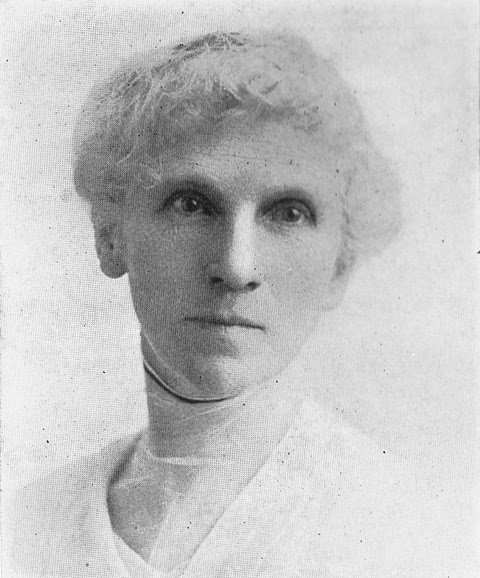Guelphites have made significant contributions to music and literature, but not all of them achieved the lasting fame of such historic celebrities as operatic tenor Edward Johnson and poet John McCrae.
A few were known in their own time, but have slipped into obscurity since their deaths. Among them are composer, organist and choirmaster Roberta Geddes-Harvey; and poet and lyricist Lydia Frances Williamson (nee Buckland).
These women would contribute to the arts as individuals and as collaborators.
Anne Catherine Roberta Geddes was born in Hamilton on Christmas Day 1849. She earned a degree in music at Trinity College in Toronto where she studied under three of the foremost musical educators of the time: Humfrey Anger, Edward Fisher and Arthur E. Fisher (no relation). She held several positions as an organist in Hamilton before moving to Guelph in 1876 to be organist and choirmaster at St. George’s Church.
She held that position for fifty years. Geddes married a local man, Gardiner George Harvey, with whom she had four children.
Geddes-Harvey was a prolific composer. She wrote hymns, anthems, songs and instrumental works, with her most creative period being from 1897 to 1919. Her opera La Terre Bonne (a.k.a. Land of the Maple Leaf) premiered at the Guelph Opera House in 1903. It is now a lost work, with only one tune surviving in an adaptation called “The Old Boys Welcome.”
Her oratorio Salvator was premiered at St. George’s in 1907 before being published in Boston and performed in Toronto.
Lydia Frances Buckland was born on June 24, 1860, the youngest of six children – all born in Guelph – of Charles John Buckland and Annabelle Sanders.
Charles and Annabelle were both from England. He had settled near Guelph in 1835 on a grant of land called the Buckland Survey. Her family had settled on a tract of land on the Speed River called Arnoldsvale.
Annabelle had prestigious artistic connections in England. She was linked through her mother to the painter Sir Thomas Lawrence and the poet Matthew Arnold.
In 1872 Charles and Annabelle moved to California with their two youngest children because of Charles’ poor health. However, by 1881 Lydia was back in Guelph and married to James Bertram Williamson, a dry goods merchant. They would have four children, all born in Guelph.
It isn’t known when Lydia began writing poetry, but she didn’t start having it published until the early 1900s, when she was in her forties. She wrote under the name Lydia Frances Williamson and also as Richard Scrace.
Her work appeared in such diverse Canadian publications as The Ontario Agricultural College Review, the Toronto Globe, and the Victoria Daily Colonist; in American periodicals such as the Los Angeles Saturday Post and the San Francisco Overland Monthly; and in a British magazine called The Queen.
Williamson’s poems were included in several prestigious anthologies: The Oxford Book of Canadian Verse (1913), Canadian Poems of the Great War (1918), Toronto Women’s Press Club: Verse and Reverse (1922), Canadian Poets and Poetry (1926), and Our Canadian Literature, Representative Verse (1934). She and her son Garrett collaborated on a book of poetry, Duet for Cello and Drum, which was published in Toronto in 1947.
Williamson wrote the lyrics for five musical compositions by Roberta Geddes-Harvey: Wayfarers, Love Quest, A War Song, My Summer and A Song of Hope. The Guelph Civic Museum owns original copies of the sheet music for the first three.
In 1918, Williamson and her youngest son, Richard, moved to Evanston, Illinois, to live with her daughter Anna. Her husband remained in Guelph, where he died in 1921.
By the time of her death on Feb. 7, 1952, Williamson was living with Richard and his family in Battleboro, Vermont. Roberta Geddes-Harvey died in Guelph on April 22, 1930.
Roberta Geddes-Harvey’s accomplishments in music have earned her recognition as one of Canada’s first female composers. Biographical entries about her can be found in the Canadian Encyclopedia, Wikipedia (a popular online encyclopedia) and such reference works as the Norton/Grove Dictionary of Women Composers.
Biographical information on Lydia Frances Williamson is somewhat more elusive. Her life and poetry have drawn the attention of researchers for the Canada’s Early Women Writers Project sponsored by Simon Fraser University, which focuses on works published before 1950. Duet for Cello and Drum can be found online.
However, Lydia could well be considered one of Guelph’s lost poets.



